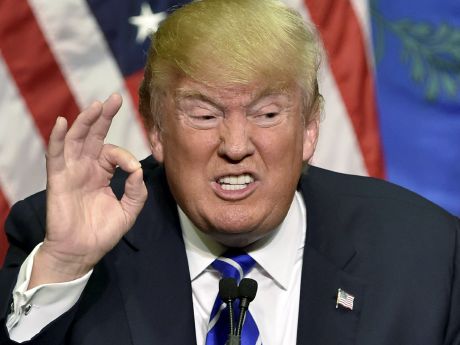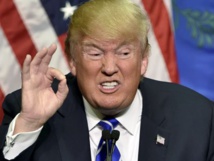Japan's top drugmaker Takeda Pharmaceutical dropped 2.61 percent to 4,840 yen while rival Astellas was down 3.89 percent at 1,605 yen.
The drop followed similar losses for their counterparts on Wall Street as Trump vowed to rein in the industry by creating new procedures for bidding on drugs to bring down high prices.
Pharmaceutical companies will be coming back to the United States from overseas, he added.
"Our drug industry has been disastrous. They're leaving left and right. They supply our drugs but they don't make them here, to a large extent," Trump said in his first formal post-election news briefing Wednesday.
However, the conference offered few details about his plans for the world's top economy beyond saying he would be "the greatest jobs producer that God ever created".
Trump's November election win had stirred hopes for big stimulus spending and set off a global equity market rally.
"The market did have some hopes that Trump would give more details about his policies. The yen's moves reflect the disappointment," Masakuni Fujiwara, chief executive officer at VistaMax Fund Advisors in Tokyo, told Bloomberg News.
"Health-care shares have been impacted by Mr. Trump's comments."
Tokyo's benchmark Nikkei index fell 0.89 percent, or 171.91 points, to sit at 19,192.76 by the break, while the broader Topix index of all first-section issues declined 0.77 percent, or 11.92 points, to 1,538.48.
On currency markets, the dollar weakened to 114.75 yen from 115.40 yen in New York.
A stronger yen hurts Japanese exporters as it makes their products more expensive abroad and reduces the value of repatriated profits.
Toyota dropped 0.65 percent to 6,867 yen and Nissan fell 0.59 percent to 1,165 yen.
Toshiba fell 3.28 percent to 291.22 yen after Kyodo News reported late Wednesday that the troubled conglomerate could be hit by bigger-than-expected losses at its US nuclear unit.
Toshiba is finalising the size of special losses at Westinghouse, which could reach tens of billions of yen, on top of a previously warned one-time shortfall of several billion dollars, the Japanese news agency quoted anonymous sources as saying.
The drop followed similar losses for their counterparts on Wall Street as Trump vowed to rein in the industry by creating new procedures for bidding on drugs to bring down high prices.
Pharmaceutical companies will be coming back to the United States from overseas, he added.
"Our drug industry has been disastrous. They're leaving left and right. They supply our drugs but they don't make them here, to a large extent," Trump said in his first formal post-election news briefing Wednesday.
However, the conference offered few details about his plans for the world's top economy beyond saying he would be "the greatest jobs producer that God ever created".
Trump's November election win had stirred hopes for big stimulus spending and set off a global equity market rally.
"The market did have some hopes that Trump would give more details about his policies. The yen's moves reflect the disappointment," Masakuni Fujiwara, chief executive officer at VistaMax Fund Advisors in Tokyo, told Bloomberg News.
"Health-care shares have been impacted by Mr. Trump's comments."
Tokyo's benchmark Nikkei index fell 0.89 percent, or 171.91 points, to sit at 19,192.76 by the break, while the broader Topix index of all first-section issues declined 0.77 percent, or 11.92 points, to 1,538.48.
On currency markets, the dollar weakened to 114.75 yen from 115.40 yen in New York.
A stronger yen hurts Japanese exporters as it makes their products more expensive abroad and reduces the value of repatriated profits.
Toyota dropped 0.65 percent to 6,867 yen and Nissan fell 0.59 percent to 1,165 yen.
Toshiba fell 3.28 percent to 291.22 yen after Kyodo News reported late Wednesday that the troubled conglomerate could be hit by bigger-than-expected losses at its US nuclear unit.
Toshiba is finalising the size of special losses at Westinghouse, which could reach tens of billions of yen, on top of a previously warned one-time shortfall of several billion dollars, the Japanese news agency quoted anonymous sources as saying.









 Home
Home Politics
Politics











